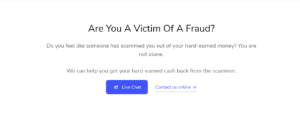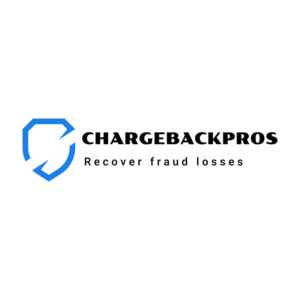Credit cards are a fast, flexible, and portable way to pay for things, so it’s no surprise that they see a lot of use in the hospitality industry. Holding reservations and paying for unexpected add-ons would be much less convenient if cash was required, but credit cards come with one big drawback for hospitality providers: the risk of chargebacks.
- What are Chargebacks?
- Why Do Guests File Hospitality Chargebacks?
- What Can Hospitality Providers Do About Chargebacks?
- What’s the Best Way to Fight a Hospitality Chargeback?
- Conclusion
ast-minute cancellations, unmet expectations, and other issues sometimes leave guests feeling like they didn’t get what they paid for, and when that happens, they can dispute the credit card charge with their bank and try to get their money back.
Consumers are not shy about taking advantage of this process—according to a recent survey, 49% of consumers who cancel travel bookings and other reservations do so via chargebacks.
Whether these chargebacks have a legitimate basis or not, they can be a big drain on your revenue and may lead to other problems. Here’s what hospitality providers need to know about dealing with them.
What are Chargebacks?
A chargeback is a transaction reversal resulting from a credit card payment dispute. When you get a chargeback, it means that the funds from a completed transaction are being taken out of your merchant account and returned to the cardholder.
The chargeback process is mandated by law in the United States. It was created to protect consumers from fraud, but some cardholders abuse the chargeback process by filing false claims in order to get their money back.
Just because a cardholder is dissatisfied with a purchase doesn’t mean they’re entitled to a chargeback—but they may try to get one anyway, and they frequently succeed.
Chargebacks are very costly for merchants. Not only do you lose the disputed payment amount, you also have to pay a chargeback fee, and if you get too many chargebacks within a single month, you may suffer additional penalties from the card network.
Why Do Guests File Hospitality Chargebacks?
Chargebacks are supposed to be used in cases of third-party fraud or when the merchant fails to provide the goods or services the cardholder paid for.
Purchases in the hospitality industry often involve ephemeral things like reservations, or unpredictable charges for incidentals and add-ons. The guest and the provider may not always see eye-to-eye on what constitutes a valid charge, leading to disputes. Here as some frequently-seen reasons for hospitality chargebacks:
- The property did not match the listing photos.
- The guest was a no-show for a non-refundable booking.
- The guest checked out early and doesn’t think they should have to pay for the full booking.
- The guest doesn’t agree with charges for damage or add-ons.
- True fraud—somebody stole a credit card and took themselves on a vacation.
Even when a guest is only disputing a portion of the total charges, the chargeback will always be for the entire transaction amount. Banks can’t file partial chargebacks, it’s all or nothing. For this reason, it’s a good idea to authorize separate transactions for add-on charges.
What Can Hospitality Providers Do About Chargebacks?
There are two approaches you can take for dealing with chargebacks: you can prevent them ahead of time, or you can fight them after the fact. For some chargebacks, only one of these two approaches will be effective.
In terms of proactive prevention methods, one of the best things you can do is make your booking terms are clearly communicated to the guest up front. Post them in a clear and prominent place on your website, and include them in any documents you provide to prospective guests. Make sure there’s no confusion about your cancellation and rebooking policies, especially if bookings are non-refundable.
If you find that a certain policy leads to a lot of disputes, make sure you explain it extra-carefully—or consider changing it.
You can also make strategic use of authorization holds to prevent chargebacks on add-on purchases. Holds can’t be disputed, so this means that if the guest doesn’t agree to the payment, they’ll be required to discuss it directly with you before they can ask for a chargeback.
To prevent true fraud chargebacks, you’ll need to be diligent about authorizing transactions properly and making use of anti-fraud software. Authentication services like 3-D Secure can help ensure that your guests are who they say they are, and AI-based fraud filters can detect and block fraudulent purchases with considerable accuracy.
When chargebacks are based on deceptive or erroneous dispute claims, you can fight them through a process called chargeback representment. This means you’re resubmitting the reversed charge and including documented evidence that proves the claim is false.
What’s the Best Way to Fight a Hospitality Chargeback?
To successfully fight an illegitimate chargeback, you have to provide the issuing bank with the right kind of evidence. The criteria for this evidence is usually spelled out in the chargeback’s reason code description.
For hospitality chargebacks, the required evidence is usually some form of proof, such as a signed document, that shows that the guest agreed to pay the charges they’re now disputing.
If they’re disputing a no-show charge, you’ll need to prove that they agreed to pay a non-refundable charge. If they’re claiming that the property was not as described, you may need to provide timestamped photographs showing that the listing photos match the actual accommodations.
For add-on charges, make sure you obtain a new authorization approval for each transaction, so the guest can’t claim that you charged their card without their permission.
Conclusion
If you’re managing a large-scale hospitality business, chargeback management companies can be a cost-effective solution for developing an effective long-term defensive strategy. If you’re working with a reputable company that understands your industry, outsourcing chargeback management can generate a positive ROI and keep you safe from card network penalties.
Smaller, independent providers who manage chargebacks in-house should be aware of this one simple trick for keeping your chargeback rate down: provide excellent customer service 24/7.
When guests know they can reach you easily, discuss their issues, and receive a satisfactory solution, they’re much less likely to file a chargeback. Refunds are always cheaper than chargebacks, and it’s usually a small price to pay to keep a guest happy enough to consider returning.











